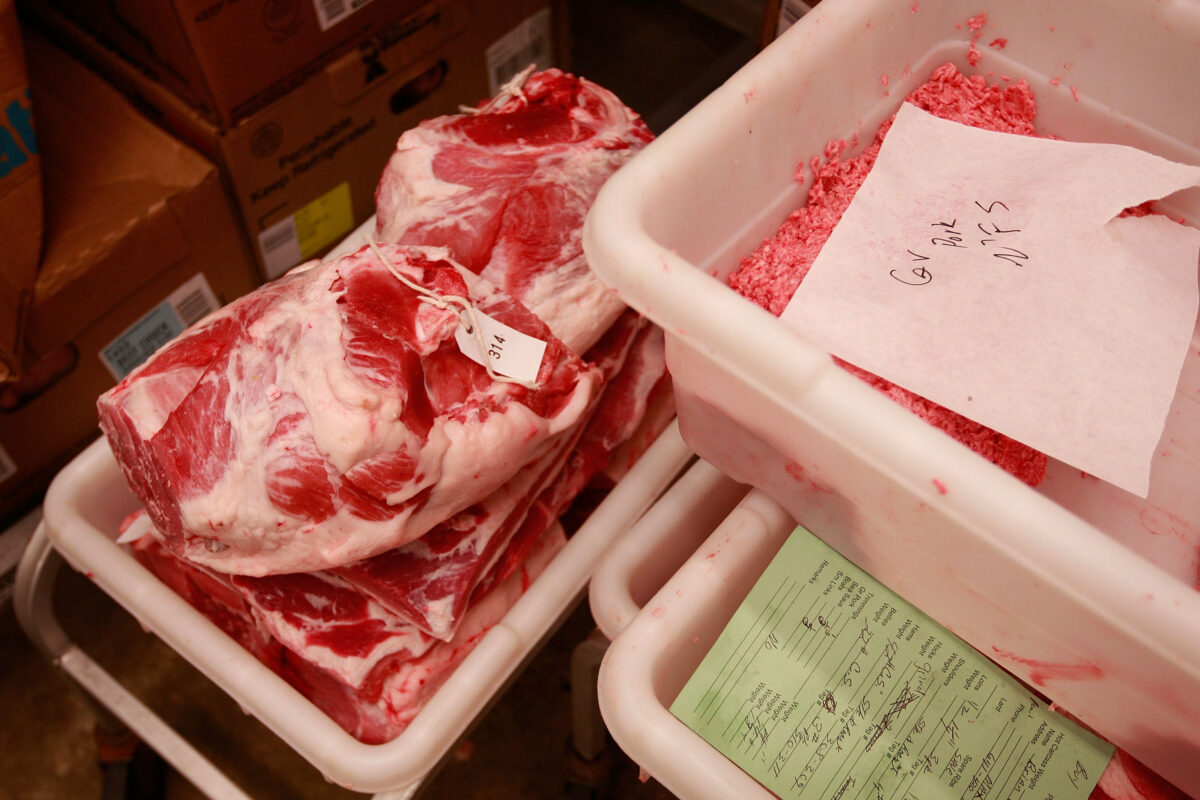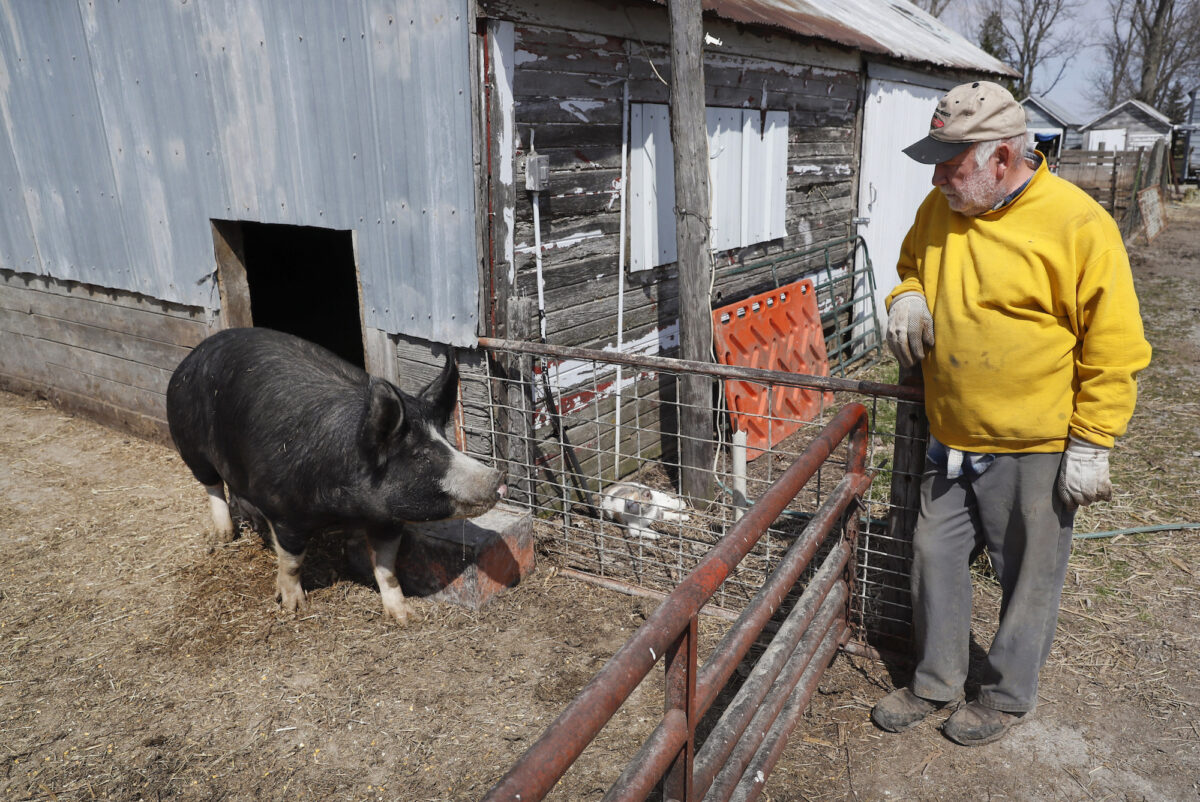Tyson Foods Warns of Shortages as Meat Plants Shutter
After years of growing market concentration forcing reliance on a few processing giants, the pandemi..
After years of growing market concentration forcing reliance on a few processing giants, the pandemic-driven closure of some of the nations major meat plants has disrupted the food supply chain, with Tyson Foods warning of shortages on grocery shelves.
On Sunday, in an open letter run as a full-page advertisement in The New York Times, Washington Post, and Arkansas Democrat-Gazette, the company said that “the food supply chain is breaking.”
“As pork, beef, and chicken plants are being forced to close, even for short periods of time, millions of pounds of meat will disappear from the supply chain,” John Tyson, Chairman of the Board of Tyson Foods, wrote in the letter, adding that closures of slaughterhouses mean farmers cant sell their livestock, and that “millions of animals—chickens, pigs, and cattle—will be depopulated because of the closure of our processing facilities.”
“As a result, there will be limited supply of our products available in grocery stores until we are able to reopen our facilities that are currently closed,” Tyson said.
 Pork cuts sit in a cooler in Elma, Iowa, on April 29, 2009. (Scott Olson/Getty Images)
Pork cuts sit in a cooler in Elma, Iowa, on April 29, 2009. (Scott Olson/Getty Images)Still, the company said in a separate statement that they were taking action to mitigate the threat of shortages to retail customers.
“Were shifting production at our plants and rerouting products to make sure store shelves stay stocked for you and your family,” Tyson Foods said in a statement.
Explaining the dynamic that could make food supply chain disruption more severe was Congressman Thomas Massie (R-Ky.), who said in a tweet that “theres a step in the process thats broken. Farmers raise animals and supermarkets sell meat. Whats broken is the butchering (aka processing or slaughtering). Over the years its become centralized and concentrated into just a few companies that are closing facilities recently.”
“Food shortages are coming,” Massie said in a separate tweet, calling on the U.S. Department of Agriculture (USDA) to act.

 Hog farmer Chris Petersen looks at a Berkshire hog in a pen on his farm, near Clear Lake, Iowa, on April 17, 2020. (Charlie Neibergall/AP Photo)
Hog farmer Chris Petersen looks at a Berkshire hog in a pen on his farm, near Clear Lake, Iowa, on April 17, 2020. (Charlie Neibergall/AP Photo)Hog farmers have been hit especially hard amid the pandemic as additional giant slaughterhouses that can process more than 20,000 hogs a day have had to close at least temporarily as the virus spreads among workers. The industry slaughters from 10 to 12 million pigs a month.
Meat processing workers are particularly susceptible to the Chinese Communist Party (CCP) virus, commonly known as the novel coronavirus, because they typically stand shoulder-to-shoulder on the line and congregate in crowded locker rooms and cafeterias.
“One producer described it to me the other day as a snowball rolling downhill, and every additional disruption that we have just kind of adds to that and how fast and how big its going to be when it finally hits,” said Mike Paustian, who farms corn and soybeans and sells 28,000 pigs a year near the small eastern Iowa community of Walcott.
Farmers without extra space are faced with the prospect of killing baby pigs they cant afford to feed.
“Sadly its true that euthanizing is a question thats going to come up on farms,” said Howard Roth, a pig farmer from Wauzeka, Wisconsin, and president of the National Pork Producers Council, an industry trade group.
The virus-driven supply chain disruption has brought about conflicting scenes of empty store shelves, while elsewhere food is being thrown away or milk poured down drains.
Demand for meat at grocery stores has spiked as more people stay home under advisories or lockdowns, while food-service industry demand, which includes restaurants and airlines, has evaporated amid business closures.
Agriculture Secretary Sonny Perdue told Fox News on April 15 that dairy farmers dumping milk was due to challenges adapting processes as producers pivot to retail, away from the food-service industry, which has been hit hard by the lockdown measures.
“We worked as expeditiously as we could to get milk where its needed, obviously in our retail stores, so thats whats happening when you see milk being dumped,” Perdue told Fox. “Its the processors not able to convert their lines into consumer-type packaging.”
The notion that meat is plentiful but that producers cannot quickly adapt processes to bring it to grocery stores is supported by statements from some industry analysts who, in Read More – Source

